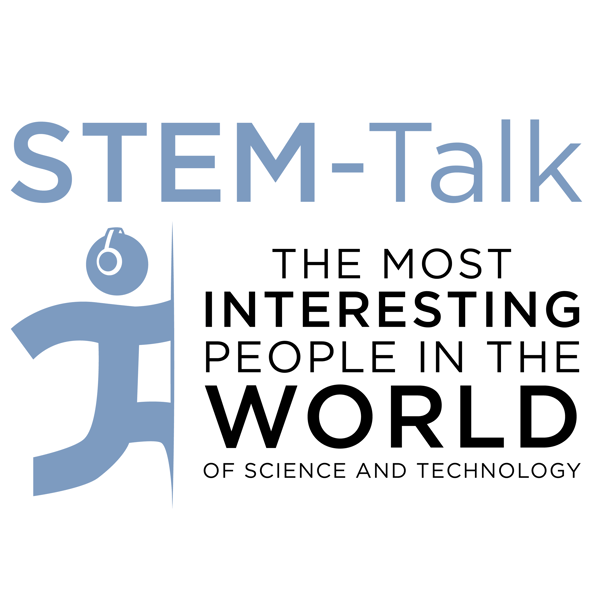Episode 163: Mark Mattson discusses glutamate, the brain’s most important neurotransmitter
STEM-Talk
Dawn Kernagis and Ken Ford
4.6 • 694 Ratings
🗓️ 31 January 2024
⏱️ 78 minutes
🧾️ Download transcript
Summary
Transcript
Click on a timestamp to play from that location
| 0:00.0 | Welcome to STEM Talk. |
| 0:01.1 | Stem Talk. |
| 0:02.0 | Stem Talk. |
| 0:03.0 | Stem Talk. |
| 0:04.0 | Stem Talk, where we introduce you to fascinating people who passionately inhabit the scientific and technical frontiers of our society. |
| 0:15.0 | Hi, I'm your host, Don Cornagas, and joining me to introduce today's podcast as a man behind the curtainain, Dr. Ken Ford, IHMC's director and chairman of the Double Secret Selection Committee that |
| 0:24.6 | selects all the guests who appear on STEM Talk. |
| 0:26.9 | Hi, Don, great to be here. |
| 0:28.7 | So our guest today is Dr. Mark Mattson, who is making his third appearance on STEM Talk, |
| 0:33.1 | and Mark is affectionately known as the Godfather of intermittent fasting. Today's interview, however, focuses on Mark's work on glutamate and comes on the heels of the |
| 0:42.5 | publication of Mark's new book, Sculpture and Destroyer, Tales of Glutimate, the brain's most |
| 0:48.9 | important neurotransmitter. |
| 0:51.0 | That's a great book title, by the way. |
| 0:53.0 | In today's interview, Mark talks about how more than 90% of the neurons in the brain deploy the little-known molecule glutamate as their neurotransmitter. And glutamate also controls the structure and function of the brain's neuronal networks and mediates many of our human capabilities, including things like learning and memory, creativity, and imagination. But there's also a dark side of glutamate, and Mark shares how glutamate can play a causal role in the development of disorders, |
| 1:15.6 | including autism, schizophrenia, and epilepsy, as well as diseases such as Alzheimer's, Parkinson's, and ALS. |
| 1:21.6 | After receiving his doctorate from the University of Iowa, Mark did his postdoc research at Colorado State University, |
| 1:29.3 | and then took a position at the University of Kentucky to establish his own lab and independent |
| 1:34.2 | research program. |
| 1:35.5 | In 2000, the National Institute of Aging recruited Mark to head its neuroscience laboratory. |
| 1:41.3 | He spent about 20 years there, and today is on the neuroscience faculty |
| 1:45.3 | of Johns Hopkins University School of Medicine. So in addition to sculptor and destroyer, Mark is also |
| 1:51.6 | the author of The Intermittent Fasting Revolution, The Science of Optimizing Health and Enhancing |
... |
Please login to see the full transcript.
Disclaimer: The podcast and artwork embedded on this page are from Dawn Kernagis and Ken Ford, and are the property of its owner and not affiliated with or endorsed by Tapesearch.
Generated transcripts are the property of Dawn Kernagis and Ken Ford and are distributed freely under the Fair Use doctrine. Transcripts generated by Tapesearch are not guaranteed to be accurate.
Copyright © Tapesearch 2025.

